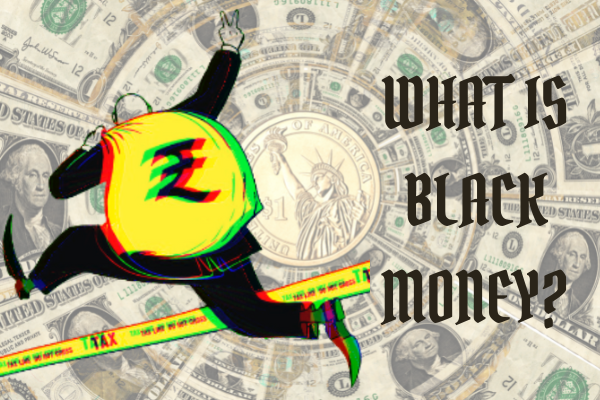What Is "Black Money," and How Is It Laundered?
The value of money is something that we all agree on. The global economy is fueled by money, also used to trade goods and services. Every person who doesn't have cash needs it for their daily life. But because of the capital, people are willing to do anything, including working overtime or illegally. Some even risk making illegal currency.
What Is "Black Money"?
The term "black money" has no precise definition in economic theory. However, black money can only be identified by law, which means that any income that the state is unaware of that is hidden from the state and does not pay taxes is regarded as black money. A country is said to have a black economy, also known as a parallel economy or black money when it is rife with this currency.
The Origin of Black Money?
Black money is defined as money that originates from both legal and illicit sources.
Running a legal business and carrying out proper business operations while not declaring or not paying taxes to the state is referred to as "black money from legal activities." Consider a business that generates more than $ 200 million annually. He claimed that the income was only $100 million when he reported the tax to the state. This indicates that the company is not reporting the proper state taxes, which are 50% higher than the revenue. This has resulted in inefficient tax collection, which has reduced national income.
The underground economy, also known as the black market, is another source. The term "black market" describes activities like trafficking in weapons, drugs, terrorism, and human beings. Along with credit card fraud and data theft, it also addresses the sale of counterfeit goods. Trading on the black market also involves using real money and not bank account payments.
The Procedure For Laundering Black Money
Turning illegal money into legitimate money is known as money laundering. There are numerous and varied ways that money laundering occurs. Due to the lack of accurate tax payment information, the government could not collect taxes. The best method of hiding is, therefore, only money laundering. Three steps comprise the financial crime of money laundering:
1. The Transfer of Funds Into the Legal System (Placement)
Black money is now divided into various components and deposited or invested in the system. Finance, including financial institutions, casinos, retail establishments, and other small and extensive domestic and international businesses. It might be currency mixing, currency exchange, or currency smuggling. Fraud involves systemic funds (B lending Fund) and the acquisition of assets without a clear form. The conversion or transfer of money through the bank will be more straightforward due to this process. Money laundering is more likely to continue among criminals.
2. Money Laundering or Fraud
To make it more challenging to locate the sources of black money and to conceal their activities, criminals must falsify, shut down, or intensify sources of money after depositing money into the legal, financial system—laundering money. Money launderers carry out their operations in this process using investments like bonds, stocks, traveler's checks, and foreign bank accounts. In those countries, banks frequently open this account without disclosing the account holder's information. As a result, both the money's owner and its source are concealed.
3. Withdrawal After Laundering (Integration)
After being cleaned, the money is used in the regular economic and financial system as legal tender in this final step.
Examples of Money Laundering:
Money can be laundered in several ways. Today, money laundering can take many forms, including playing online games, taking out loans online, visiting casinos, buying real estate, and using digital currency (Cryptocurrency). But the best and most well-liked approach is to launch a phony business called Shell Company. Although Shell Company presents itself as the real thing, it has no physical location where its products are located. This business exists only on paper, of course.
It is essential to recognize the significant impact black money has on the economy as a source of data loss in the state's tax collection efforts and a hindrance to national development. Leaders worldwide are concerned about and vehemently opposed to money laundering because it is a severe crime.


